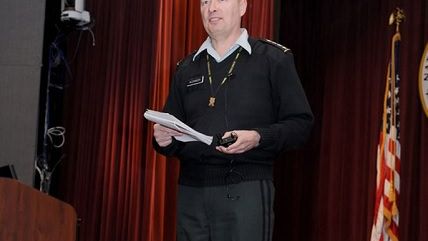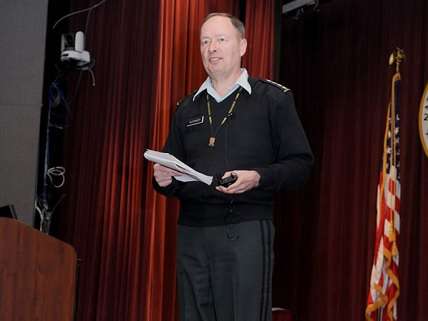Former NSA Chief Cashing In on Spook Background, Making $1 Million a Month to Consult


Gen. Keith Alexander was the longest serving chief of the National Security Agency (NSA) in the history of the organization, spending nine years at the top of the agency. In that time, he was part of nine patent applications for technology he helped develop while there. But now Alexander is going around charging big corporations and banks $1 million a month for consulting work and says that he's got new ideas he's going to patent that make his advice worth so much. Although he only retired in March, Alexander now says that the reason he can charge up to $1 million a month is because of a new set of patents he plans on filing he insists he came up with only after leaving the NSA. He insists, too, that agency lawyers have reviewed to ensure were not based on ideas proprietary to the NSA.
Alexander's explanation comes a few weeks after Rep. Alan Grayson (D-Fla.) wrote (PDF) one of Alexander's clients expressing concern that the former NSA chief must be offering classified information to be charging as much as he is.
Foreign Policy explains why Alexander's actions could be problematic even if everything he says is true:
But even if Alexander's new technology is legally unique, it is shaped by the nearly nine years he spent running an intelligence colossus. He was the longest-serving director in the history of the NSA and the first commander of the U.S. Cyber Command, responsible for all cybersecurity personnel -- defensive and offensive -- in the military and the Defense Department. From those two perches, Alexander had access to the government's most highly classified intelligence about hackers trying to steal U.S. secrets and disable critical infrastructure, such as the electrical power grid. Indeed, he helped to invent new techniques for finding those hackers and filed seven patents on cybersecurity technologies while working for the NSA.
Foreign Policy calls this an unfair competitive advantage. Alexander's actions after leaving his post at the NSA provide an illuminating example of how government officials use their "public service" careers to profit in retirement, something that should be, at the very least, seriously questioned. The NSA compensated Alexander well for his time there—perhaps it would not be too unreasonable to include in employment contracts for people like Alexander clauses that prevent future private sector employment in related fields. After all, wasn't that one of the reasons provided for compensating government employees well in salary and pensions in the first place?


Show Comments (46)